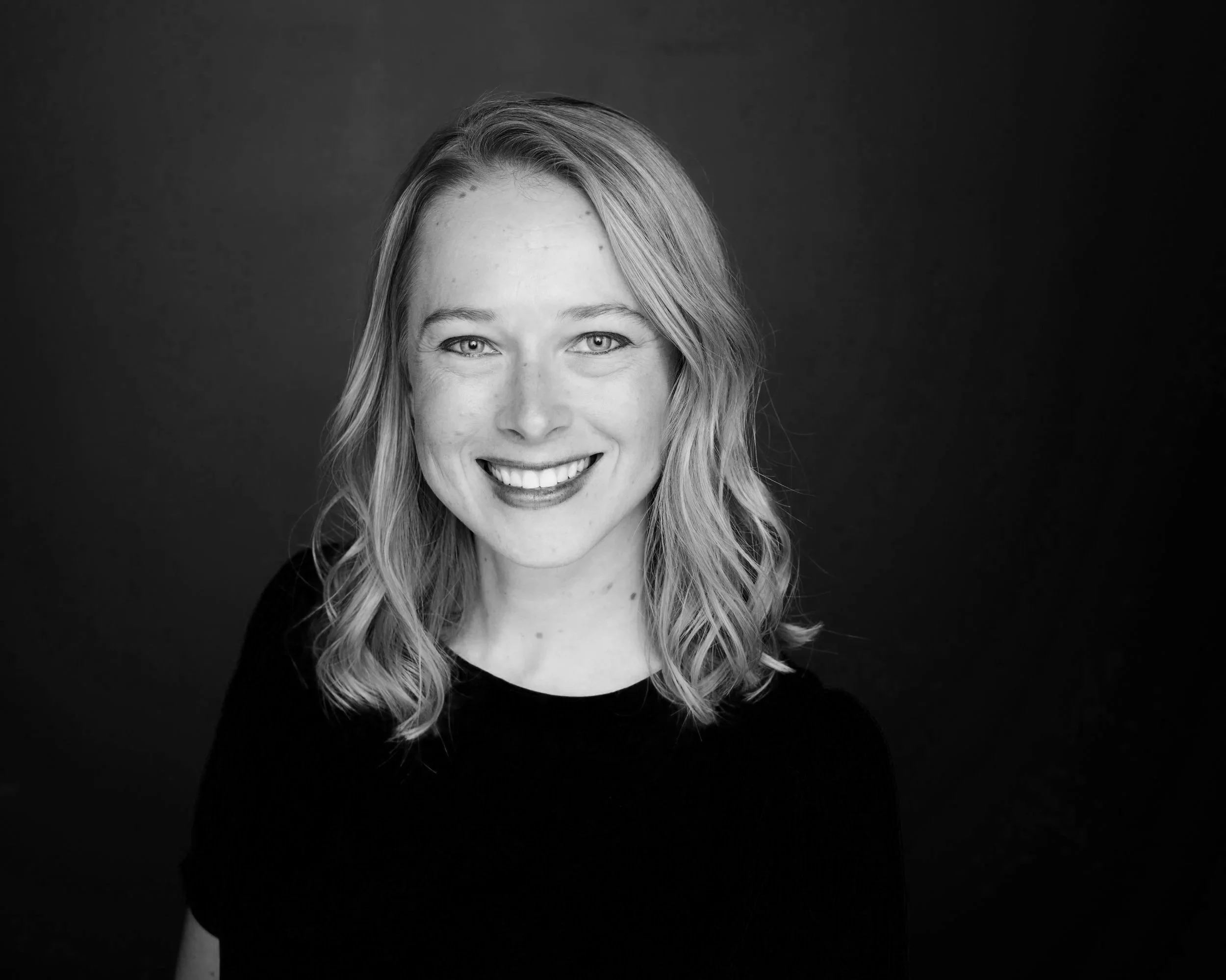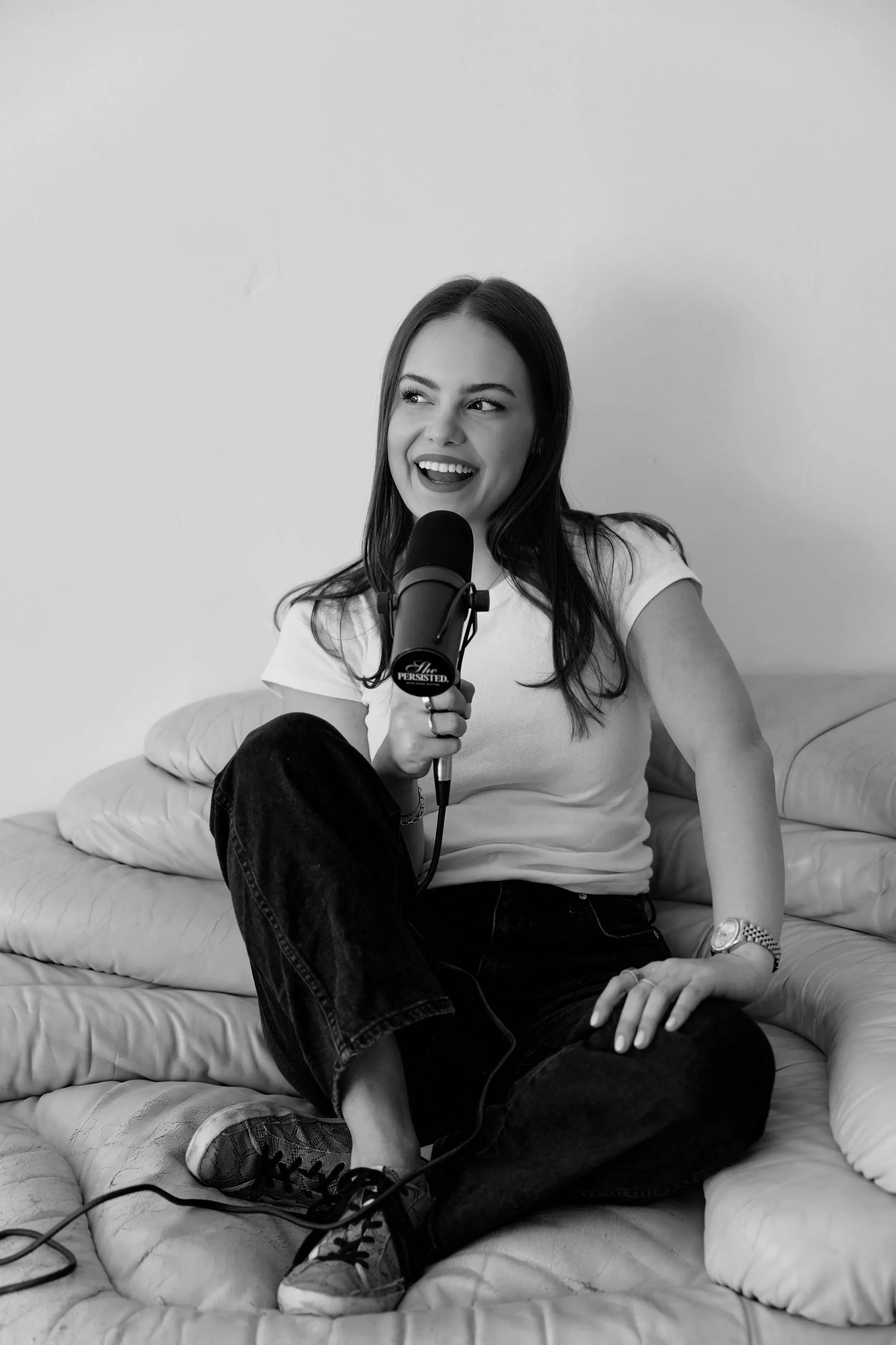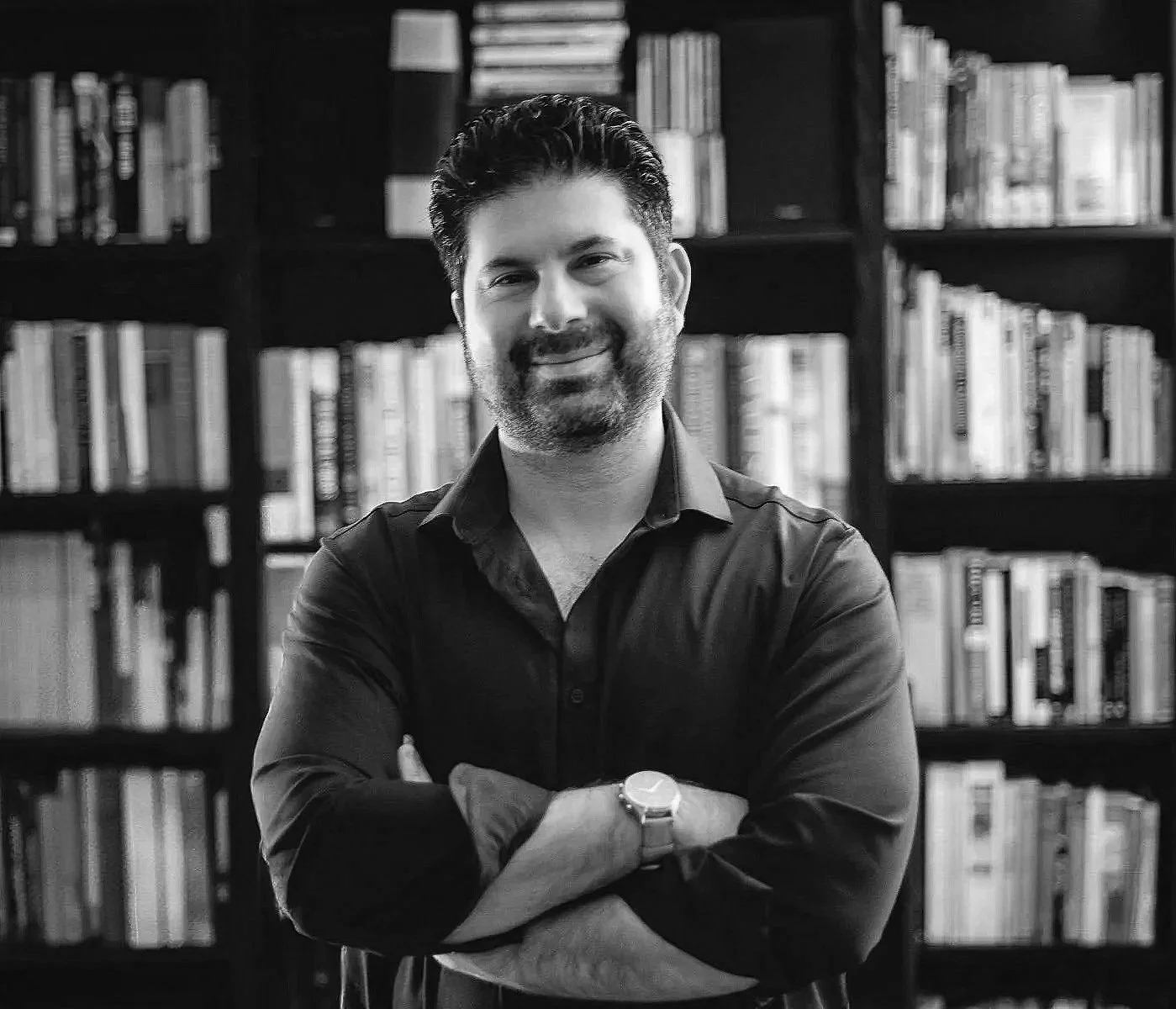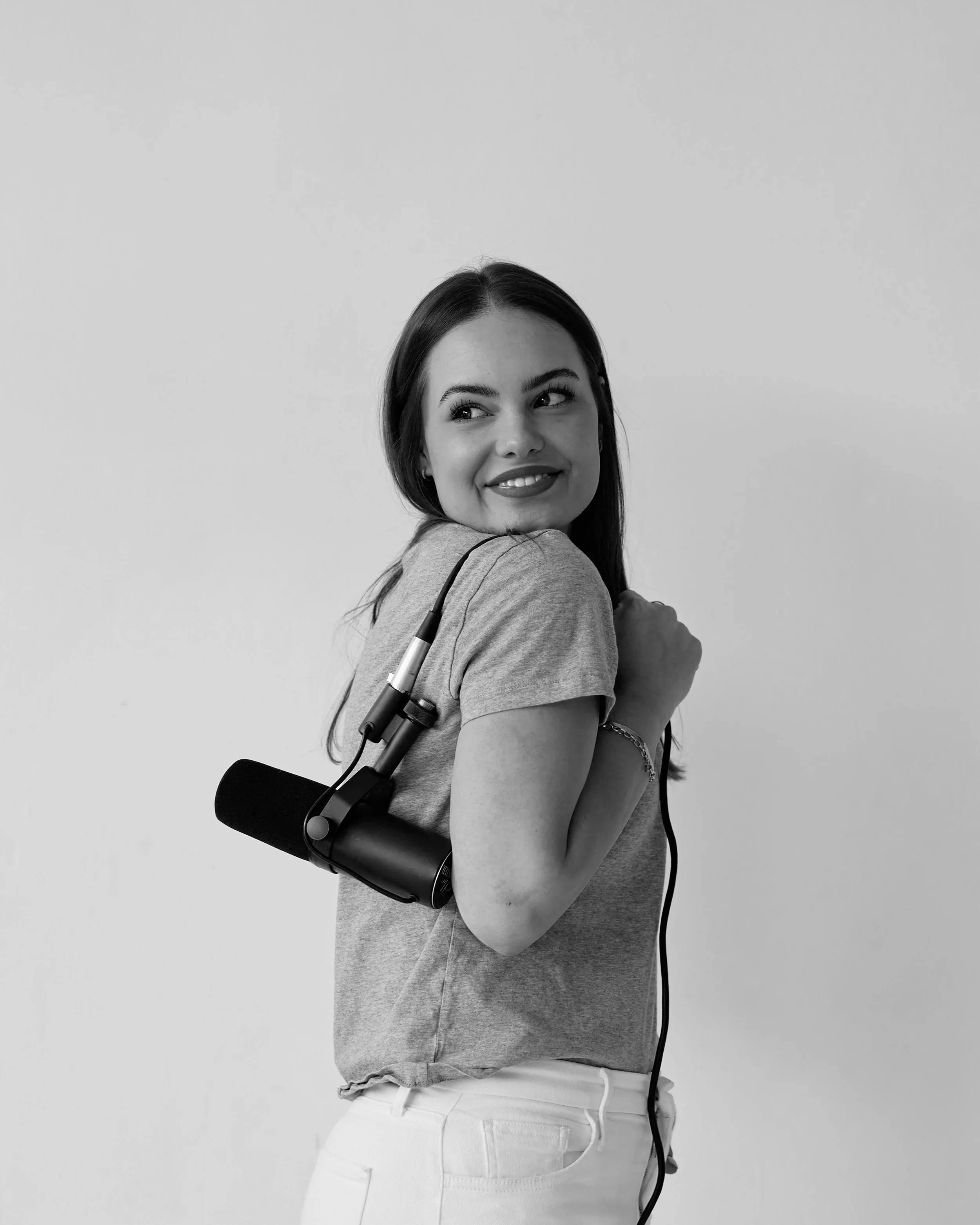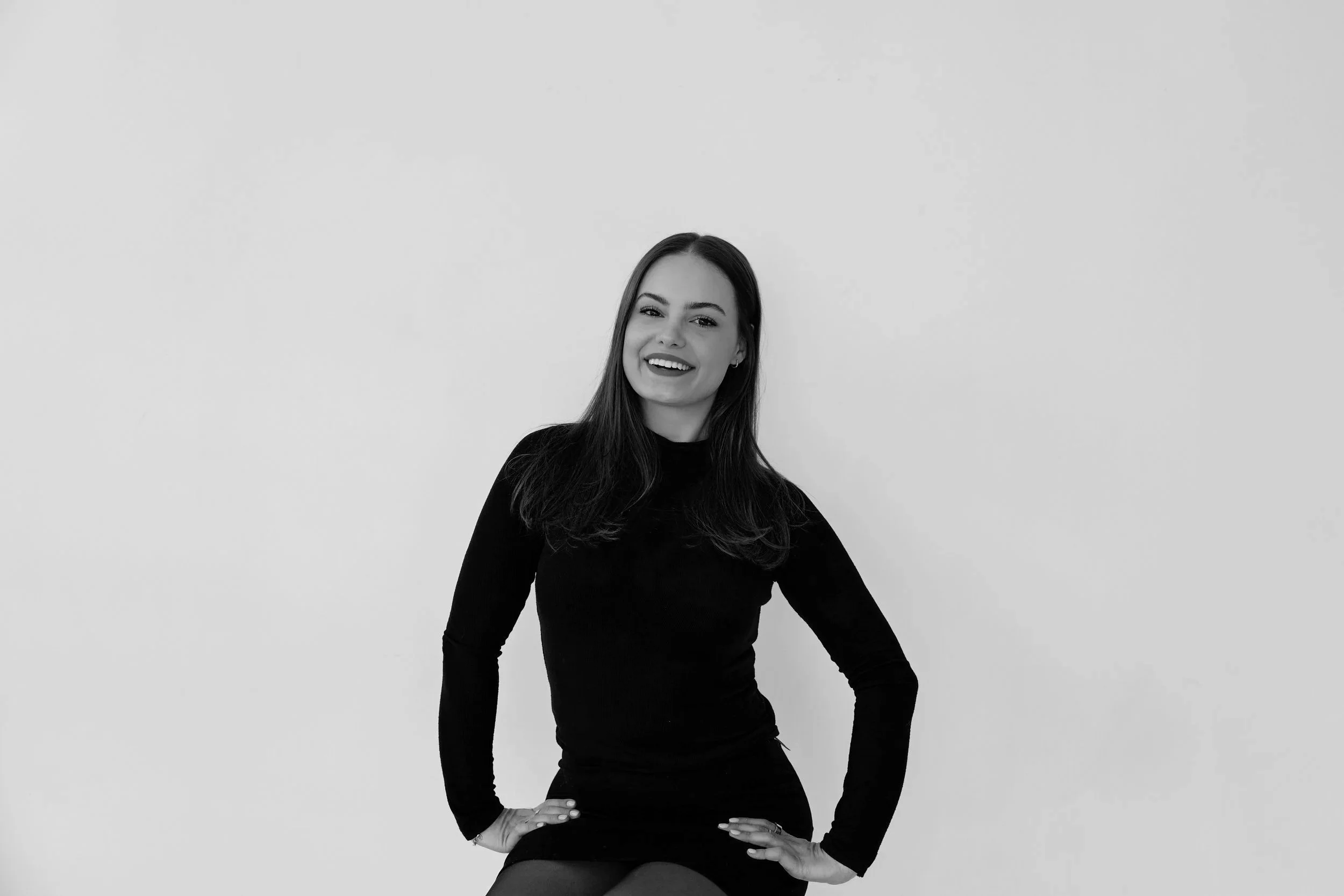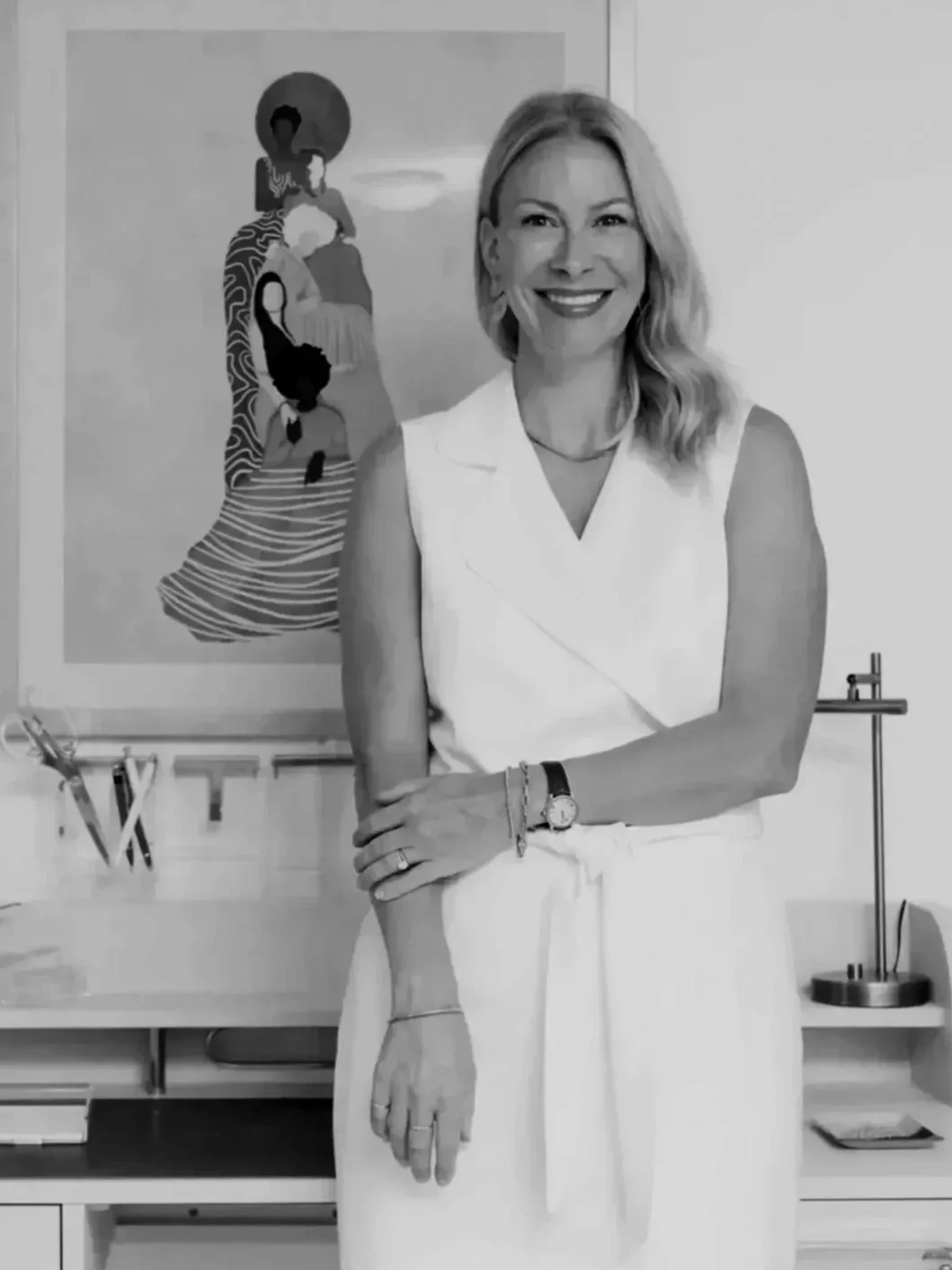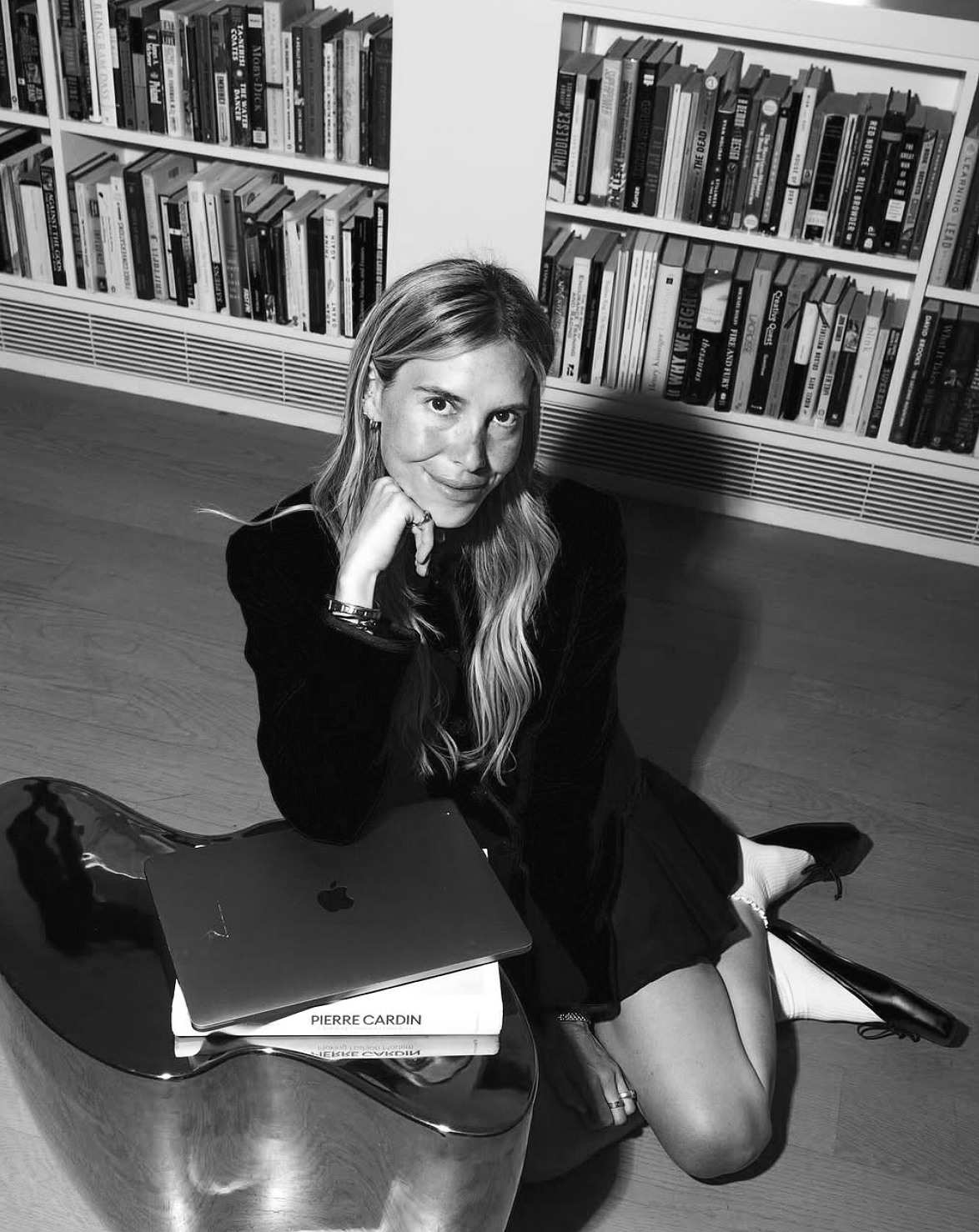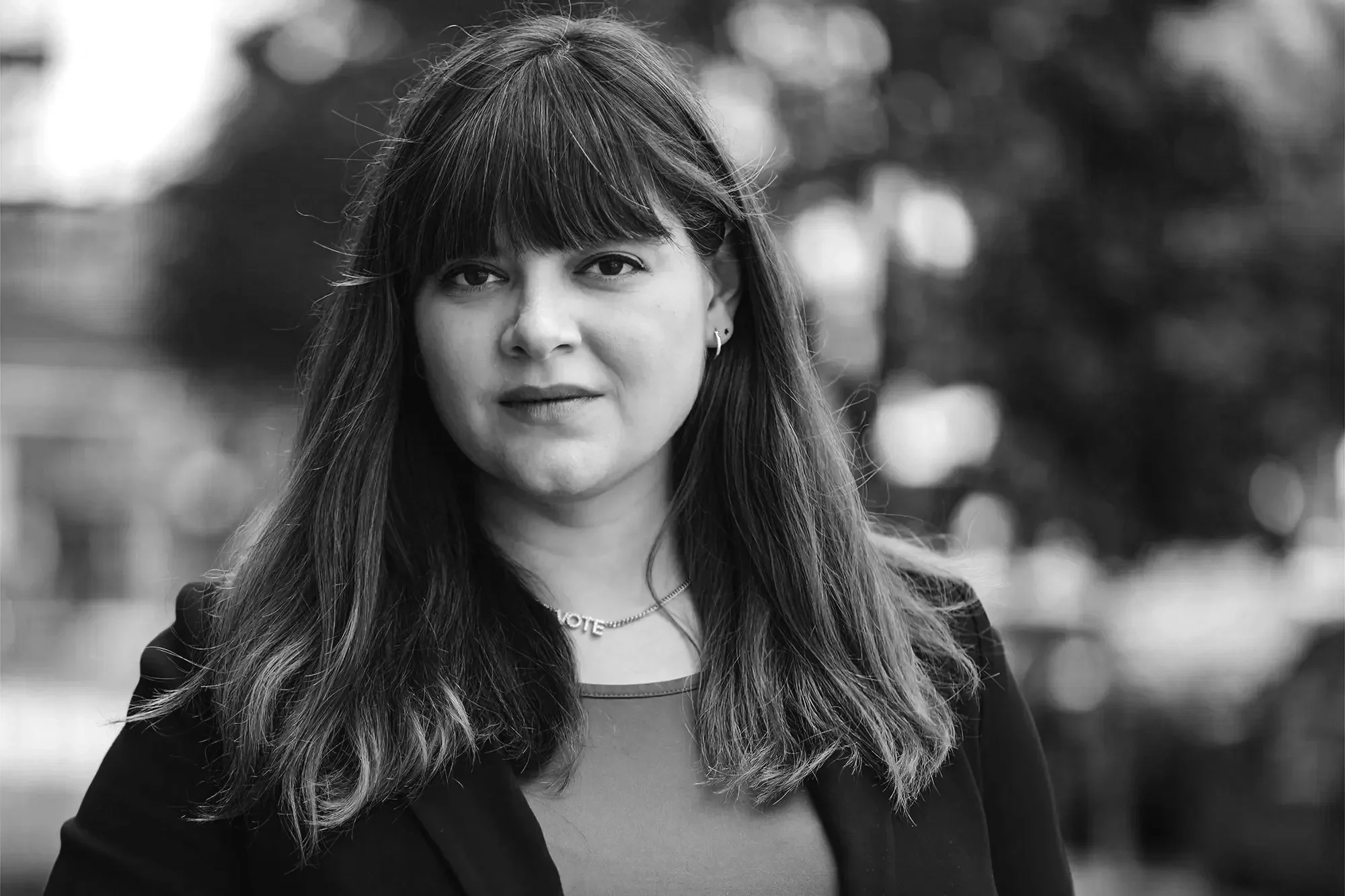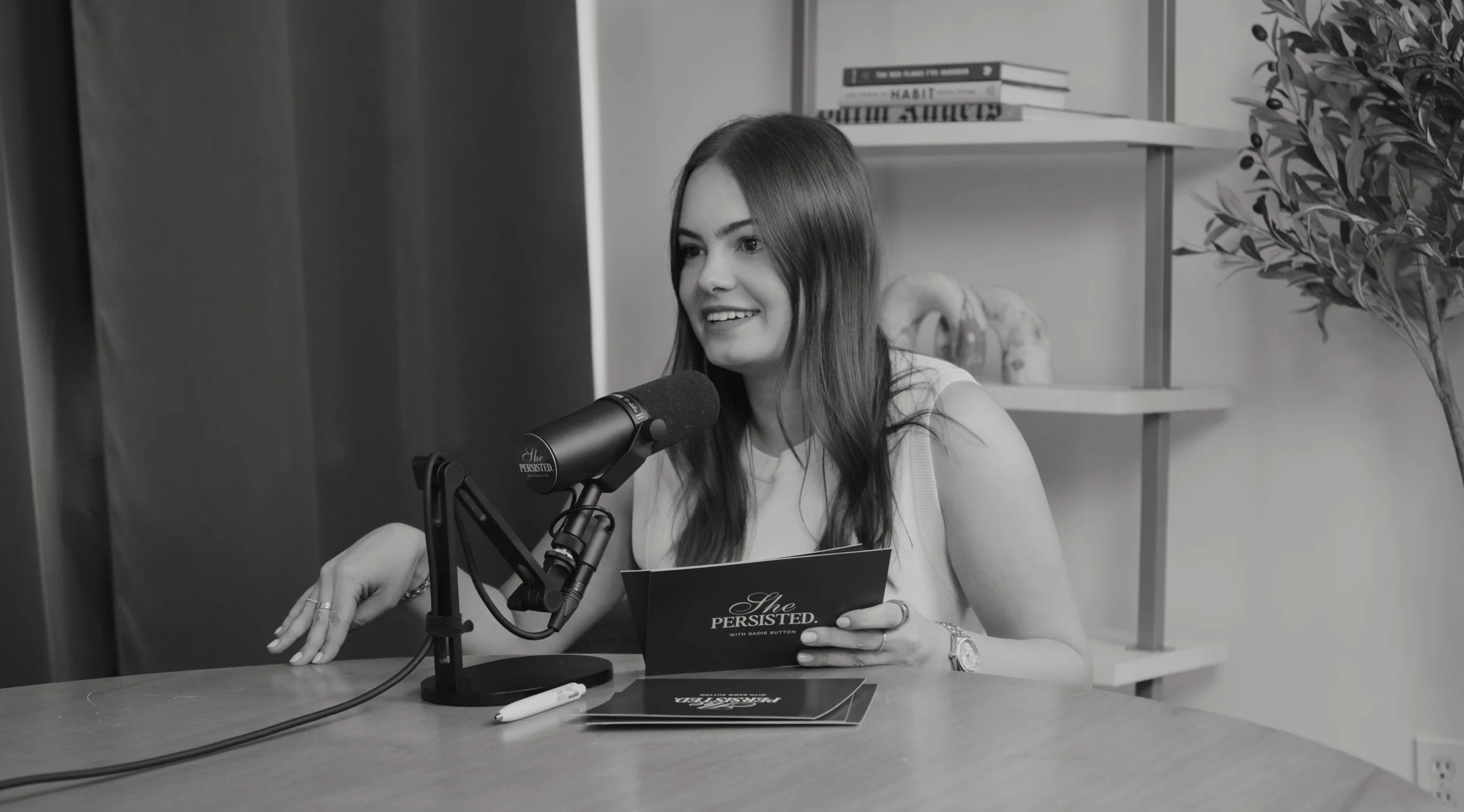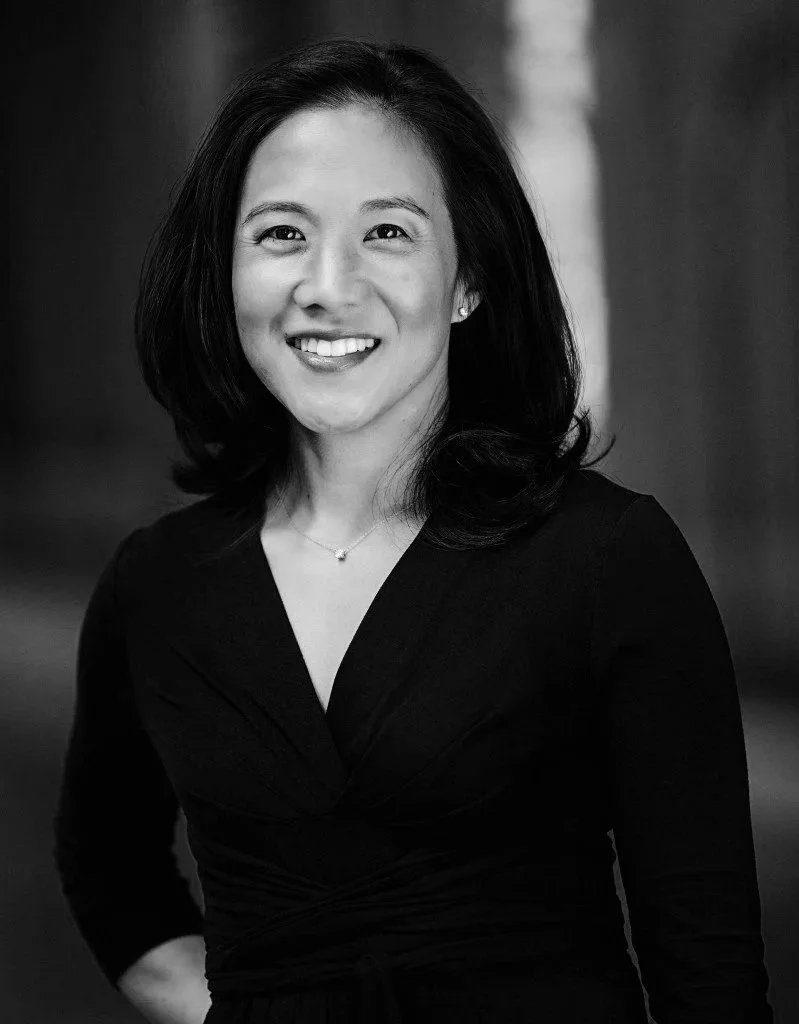225. your worst traits are changeable… here’s how (feat. olga khazan)
listen to this episode:
Tune in and subscribe on your favorite platform: Apple Podcasts | Spotify | YouTube | Amazon | GoodPods | Castbox | iHeart Radio | overcast | pocketcasts
today’s guest is olga khazan— a journalist and author known for her work on health, science, and social science topics. she is currently a staff writer at the atlantic and has previously written for the new york times, the los angeles times, the washington post, forbes, and other publications.
in this episode, we break down the five traits that make up your personality and exactly how you can change your personality for the better.
we talk about:
what *actually* shapes your personality type
the five traits that make up your personality
popular personality tests + if they’re accurate
how your personality traits affect your daily life
if your personality traits are changeable or fixed
the most common traits people want to change
life hacks for changing your personality traits
benefits of changing certain personality traits
dealing with fears over self-growth + change
changing your personality to fit in
myths around personality psychology
advice for gen z on shaping your personality
Mentioned:
SHOP GUEST RECOMMENDATIONS: https://amzn.to/3A69GOC
About She Persisted
She Persisted is THE Gen Z mental health podcast. In each episode, Sadie brings you authentic, accessible, relatable conversations about every aspect of mental wellness. Expect evidence-based, Gen Z-approved resources, coping skills (lots of DBT), insights, and education in each piece of content you consume. She Persisted offers you a safe space to feel validated and understood in your struggle while encouraging you to take ownership of your journey and build your life worth living.
a note: this is an automated transcription so please ignore any accidental misspellings!
[00:00:00]
Sadie: Welcome to She Persisted, the Gen Z Mental Health Podcast. I'm your host, Sadie Sutton. Let's get into it.
Olga: So a lot of people have asked me that, like, why should I change for other people? And I really think the answer is like, you shouldn't, I, I don't think you should change to fit in with other people I think it's really more for you.
Don't think about where you're gonna fit in or like how other people are gonna like you more. Think about what you stand to gain and how you can boost your own mood and get more outta life.
Sadie: Hello. Hello you guys, and welcome back to another episode of She Persisted. I'm so excited you guys are here. If you follow on Instagram, you saw a little teaser. I walked around a little independent bookstore in Boston this weekend, and.
Whenever I go to a bookstore, I love to visit my podcast guests via seeing their books. It is like the coolest pinch me moment to be like, oh my God, I know that person. I interviewed that person. We talked about that book that's now like on the shelf in this random location, in this random city or in this airport.
It's just like the coolest, most surreal thing. Like [00:01:00] one day I wanna have in my office as a psychologist or as a researcher, whatever it is, a bookshelf. I'm gonna be in my podcast studio one day when I have a podcast studio, a bookshelf with every single book from every single podcast guest I've had, and it's like the She Resisted collection.
Anyways, if you saw that little walk down memory lane, and I was talking about episodes with guests whose books I found in the bookstore, I also teased two upcoming episodes, one of which is today's episode. We have Olga Kaza on the podcast. of the new book, me But Better, which is a fascinating book about how to change your personality and the science of personality change. So if you're like, okay, that sounds super interesting. I don't know where to start. This is the episode for you because we go over the basics of like, how do we define personality?
Like there's all these things out here, and we talk about the Enneagram, we talk about personality types. We talk about the scales that are typically used in psychology. When we talk about personality, we talk about. What we know about it, like is it changeable? What influences [00:02:00] personality? And then we talk about different ways that you can effectively change your personality, real activities.
You can go out into the world and do people to surround yourself with to shift certain traits and traits that a lot of people wanna shift. Why you might wanna change these things, how it relates to your mental health. Because there is one personality trait in particular that has really correlated with a lot of mental health challenges.
So like if you wanted to shift. That and make yourself like less prone to thinking in certain ways and behaving in certain ways that's not necessarily super great for mental health and sometimes worth thinking about in the context of this episode. Olga is a journalist and author known for her work on health science and social science topics.
She's currently a staff writer at The Atlantic and is previously written for The New York Times, the Los Angeles Times, the Washington Post, Forbes, and many other publications. And so in this episode we are talking about her new book, which you guys can find wherever books are sold, like I did this weekend in Boston, which was so fun.
Like I said, it's called me but better. Linked in the show notes, but we break down the five personality traits that [00:03:00] make up your personality. The ones that we know the most about according to psychology, the ones that are most predictive of things in life. And we talk about exactly how you can change your personality for the better.
And if you're listening to this and you're like, okay, what about self-acceptance? Like what about this idea of just like accepting ourselves as we are? Like, I don't know if I wanna change who I am. We talk about that because Olga's previous book. which you've probably seen on a shelf somewhere, is called Weird.
And it's about the power of being an outsider in an insider world. And so we talk about the importance of like embracing who you are. And it's more like when you're kind of having a conflict or you feel like this isn't serving me right, or this is really keeping me from like this goal I have, or being this best version of myself and not in a, like I'm not good enough so I'm gonna change this, but like to be the best version of myself it might be effective to look at shifting this trait, if that makes sense. So we come at this from a lot of perspectives. I adored this conversation with Olga. I know you guys will learn so much from listening to this. And I loved all the anecdotes and [00:04:00] research that Olga wove into this conversation. You guys have to check out both of her books if you like this conversation. And I am talking so much in this intro, but I just cannot wait for you guys to listen because it's such a great episode.
And if you guys like the episode, make sure to subscribe, turn on automatic downloads and share on social media. If you tag me, I'll repost. You'll be entered into our monthly giveaway to win a Starbucks gift card on me.
And thank you guys for supporting the podcast. It means the world. I love when you comment and send me messages about the episode. Like nothing makes me happier. And you guys really loved last week's episode. I got some really sweet messages and comments about it and that just like made my whole life. It was the best.
I shared them with so many people, I was like, oh my God, they like the episode. You might have seen them on Instagram also. Also, I wanna mention before we dive in again getting sidetracked. If you ever send me anything, I will never like post it without blurring a name or if it seems like something that's like.
Specific to you or like not related to know. I would never share that. so I just wanted you guys to know if you're ever like, I liked an episode, I wanted to like share, but I don't want that to be shared with everyone or like, I just wanna send a [00:05:00] message or I just have a question to talk about.
In a future episode, you can either anonymously send. Through the Google sheet on my website. it's like a form. It doesn't require a name or an email and you can just send in questions and suggestions and submissions and all the things. Or you can send me a message and be like, don't wanna share this, but I just wanted to pass this along or like, feel free to share about the episode.
But I always remove any identifying information or any other things that are not related to like. People that are enjoying the episode. so with that, let's dive into the science of personality change.
well, thank you so much for joining me today, Olga. I'm so excited to have you on Sheed. I have been following your work for a while and am really excited to sit down with you today, , and just dive in and get your perspective on a number of things that are really relevant to Gen Z. Yeah, I'm excited too.
Thanks for having me. So I would love to give a little bit of background to listeners who. Are completely coming in blind. Maybe they've seen a book at the bookstore, they're headed through the airport, they've seen the cover before. , But they don't know your background. They don't know your story. [00:06:00] Tell me how you ended up writing your background as a journalist and also having this specialty, this interest in personality, , and that kind of part of identity and sense of self.
Olga: Yeah. , So I've been a journalist. At the Atlantic since 2013. , And I've covered different things. , I don't only write about psychology, but I've written a lot about psychology. , And I wanna say it was like several years ago, I came across this research that was like, you can change your personality.
And I was like, that's weird because first of all, like, isn't personality stable? And also why would you wanna change your personality? That sounds. Like not something most people wanna do. Yeah. , And so, , I started kind of like reading more and more about it and interviewing the researchers who study personality.
And what I kind of came to realize is that like your personality traits are almost like tools that help you achieve your goals in life. So personality, it encompasses a lot more than like [00:07:00] what we like and dislike it. It's sort of like the way you approach the world and the way you approach different situations.
And how you react to adversity or challenges. And a lot of times the way that we react to things, , is maybe like not the best way. Like maybe it's, you know, maladaptive as we say in science. Like you might, , be kind of like overreacting to a situation or, you might be like writing off an opportunity just because you think it's not like a natural fit for you.
And a lot of those. Kind of instances are dictated by personality traits. It's like, how do you approach situations like that? And I, and I noticed that in my own life there were a lot of things that were kind of going wrong that were pretty clearly influenced by my own personality traits. , So I wanted to kind of tackle those and, , honestly just kind of like experiment with this research protocol that I was reading about to see if it would work on me.
Sadie: Yeah, I am so excited [00:08:00] to dive into the protocol itself and how we test and understand personality and these parts of personality that were maybe not so effective. 'cause I have a lot of thoughts there because as you know, like mental health outcomes and also some other maybe more positive areas of life can overlap with personality a lot.
But I would love to start for people that haven't taken Intro to Psych or they're just listening to this on their morning commute, this idea of personality, again, we get into the weeds with how we define these things. And it can get confusing. 'cause colloquially we'll talk about personality and it can be really different from what it means From a research standpoint or from a psychology concept. So how can we understand personality? Like is it how we talk? Is it the relationships we show up in? Is it how we think about things? Is it how much we're feeling? How can we understand personality as a concept before we work to change it or understand it in other people?
Olga: Yeah. So it's kind of all of those. , , Brent Roberts, who's like the [00:09:00] big, , personality researcher, , sort of defines it as. Thoughts, feelings, and behaviors, right? So it's , you know, someone comes at you with an idea, let's go to Bali, Indonesia this weekend on a last minute getaway. I'd be like,
Sadie: absolutely not.
Olga: Are you? Yeah. Are you like, , wait, no, I have plans already. Or like, are you like, yeah, I totally would love that. I'll like. Throw everything to the wind. I like,
Sadie: I have no plans. And the no plans can't be changed.
Olga: Exactly. Yeah. Or like, yeah. So everyone is gonna have a different reaction to that. And that's part of your personality is like how, like what's like sort of the first thing that comes to your mind when something like that happens?
You know, what are your values? What are you interested in? what do you pursue? What do you think about? , And the way that this is measured is through five traits. openness to experiences, conscientiousness, extroversion versus introversion, agreeableness and neuroticism versus emotional stability.
So those are like two sides of one coin. , And so I think go deeper into each of those, but [00:10:00] those are kind of like the five traits that. Researchers think this is your personality. Like where you rank on each of these is sort of the kind of person you are. And if we have a good sense of where you are on each of these, we can paint a pretty good picture of who you are as a person.
Sadie: Yeah. So I'm curious before we dive into what all of those things can correlate to how they generally change, , as we age and as we go through life. And if we can intentionally change them. I'd first love to kind of hear your thoughts on personality tests, because the different traits you just described are what we see in a lot of research.
It's like very common in a lot of psychology studies and outcomes, and we have a really good understanding of like what neuroticism is correlated with, , and what extroverts are more likely to do. But there's also like a lot of other personality tests that float around. Like some people love their zodiac signs.
There's like the, I'm totally gonna butcher the name of this, but it's like letters and numbers. Together. Enneagram. Yes. People love [00:11:00] that one. Enneagrams. Mm-hmm. People feel strongly about their enneagrams, like they identify in a big way. And so I'd love your thoughts on these other ways that people are describing personalities.
Is it kind of like building on this initial foundation that's been established completely different? , Why is this the way that so much research looks at personality to compare to these other metrics and measures?
Olga: Yeah. So, , I always like hate this part 'cause people are like, you'll pry my enneagram from my cold dead.
Like people will, if it works for you, great. Love that for you. Yes, yes. So, like, I totally think that like, for fun or just interest or like even to like, know more about yourself, you can totally take these tests. Enneagram, MBTI, yeah. Myers-Briggs. Is another one. You can even do a horoscope, you know, if you want.
And the, they can be interesting and fun. Some of them are like, sort of valid, like, , Myers-Briggs has some elements of validity to it. , I would say like, where those [00:12:00] go wrong is that they put people in categories. So it's like, if you've ever taken a Myers Briggs, it's like, , introverted, , you know, judging thinker, you know, something like that.
Yeah. And it's like. Really, none of us are like totally introverted or totally extroverted. Yeah. Or, , a, you know, a total like judger if you think about it, like, sometimes you make judgements, but sometimes you're more emotional or I, I forget what the other one is, but like Yeah.
You know, , sometimes you're kind of introverted, but like. Right now you and I are being kind of extroverted, so, , you know, it's like, it's, it's, , where those go wrong according to researchers is that they put people in categories. , And so what they like about the big five, which is that what I described earlier, those five traits Yeah.
Is that they're all on a spectrum. So, , you could be, you know, 30% introverted or. You know, 80% extroverted. , But you're not necessarily all the way, one way or the other because we all like, at the end of the day, need a little bit of. That opposite side. Yes. Like we're never gonna be a hundred percent that that would not be a good [00:13:00] thing to be all the way over to one side.
Sadie: Yes, a hundred percent. And I think understanding where you fall on that spectrum, especially because we know so much about personality with that structure can be really helpful. I took Angela Duck. , Grit lab class mm-hmm. This last year and one of the big units was personality and understanding where you fit on the big five, and then where that maps onto like different career interests and values and how you can show up in a way that's really aligned with.
How you are as a person and not like just forcing yourself into these different boxes, which we'll talk about. Can you do that? Can you shift yourself to fit in these different contexts? , But not even in like a what is my personality like compared to others, but like. What is my personality like?
So how can I put myself in context that allow me to thrive? Can be so helpful when you understand, , where you fit on those spectrums and where you feel your best and how you show up your best and how you can set yourself up for success without like fighting against yourself. Totally. Yeah. [00:14:00] So I would love to talk about the different traits, , the big five and.
What we know about these different traits, because like you mentioned, there's so much research that's been done using this structure of personality, and my mind instantly goes to neuroticism because there's so much research on how that correlates with mental health. , But could you kind of explain to us how those different personality traits actually show up, in areas that we think of on a day-to-day basis?
Maybe it's relationships, maybe it's career, maybe it's goal setting. Like thought processes, how do those actually come to play in our day-to-day lives?
Olga: Okay. I'm gonna go a little out of order because it starts, the acronym starts with openness, but that's the most challenging one. Mm-hmm. To explain. , So I'll start with conscientiousness.
Which is like the trait that your boss. Loves, , the trait where you're always making your bed. You are always on time. You never forget where you left Underneath. My bed is out of the freak on purpose right now. These are people [00:15:00] who are neat freaks.
They're morning people, they are organized. They are very like, meticulous in pursuing their goals. You don't have to like keep them on task. They sort of keep themselves on task.
Sadie: Yeah.
Olga: So this is something that people really love to like, first of all cultivate in themselves. And then, , , again, bosses and, and other like internships and things are all like kind of sorting for conscientiousness basically.
Yes. extroversion and introversion are pretty self-explanatory. , One thing I will say about extroversion is people think it's like, are you the life of the party? Mm-hmm. But it's really like how much you seek out other people and activity in general. It's not so much like, like, so for people who are like wary of experimenting with extroversion, it can be something like joining a book club and sort of.
Listening kind of more than you talk, but just like that, that feeling, being around, being around people, being around people, being in a community is sort of what extroversion is all about.
Sadie: Mm-hmm.
Olga: Agreeableness is sort of [00:16:00] the cuddly, like warm, , trait. So more so than extroversion, it's like. You're just always thinking about other people.
You have this like really kind heart. You're just, , putting others needs in, in front of yours, , empathetic and warm, , you know, is kind of how people describe you. , Yeah. And neuroticism, , you alluded to, , is another one that people really like to. Change or try to change, , because it is correlated with anxiety and depression.
It has a lot of like negative thinking kind of component. Like, it's sort of like you get into those negative thought spirals with neuroticism and you kind of have a hard time getting out. Like, so everything is sort of. Goes from bad to worse, when, when bad things happen to you, to a neurotic person.
Yeah. And that was one that I really struggled with and that I worked on, , for the book. And, , so openness is a little bit funny because it is sort of a catchall for a bunch of different things. , But the best way to describe openness is sort of [00:17:00] that example that I gave you earlier of like, Hey, wanna go to Bali this weekend?
And like an open person would be like. Yeah, totally. Or like, yeah,
Sadie: buy flight tickets.
Olga: Yeah. Like an open person with like an unlimited budget and no job. Like Yeah. , But I, you know, even just smaller things like, hey, wanna go to this restaurant you've never tried. Eat this dish you've never heard of. Like, go to this foreign movie and this abstract art exhibit.
They're just like, up for whatever. And new experiences and new things. Make them really excited. , And they, they are not the people who will like rewatch the office for the millionth time while eating like pizza,
Sadie: doing
Olga: that right now. Not that there's anything wrong with that. Yeah. I love the office rewatch, but yeah, the, they're kind of on the opposite side of that.
Yes.
Sadie: And you alluded to this earlier, where like right now in this conversation, we're being more extroverted, we're open in that we'd never. Met before doing this interview. Are these traits that are [00:18:00] constant in all these different silos of our lives, or are these personality traits kind of dependent on who we're around or the context that we're in?
Like how much do these change on a day-to-day basis depending on what environment we're in?
Olga: I will tell you several different theories. Yeah. Okay. I love it. , Theory one, this is like a more, I, I would say proven at this point, , is we basically all change throughout our lives. So most of us will change on at least one trait over the course of our lives.
If you think about, I mean, I, I guess most of your listeners are young, but if you. , If you look at like your parents, like, they're not like what they were, like in high school, right? Like they're, yeah, they're pretty different. Like we all kind of mature as we get older because we're in these roles.
Like we get jobs and we have families and we end up having to adapt to these roles and our personalities kind of change along with that. Mm-hmm. , And just like life throws things at you and you kind of. You kind of change a little bit to, to adjust to that. Okay. Theory [00:19:00] number two, , is that we all, , kind of reflect the people that we're around.
So if you think about it like. , when I went to college, so I grew up in an area where nobody swore or used cuss words. , Yeah. And, , then I went to college, , at a college where everyone swore and used cuss words. , And so I came home from my first like. Fall break or winter break or something.
And I was like, F this, F that. Like, just like every other word was an F bomb. Yeah. And my friends were like, whoa, what happened to you? Yeah. Like you've crossed over to the dark side. So that wasn't like a personality change, but that's an example of how the people that you're around influence the way you behave and the way you think.
And what you think about and, and what you want sometimes even. Mm-hmm. You know? , and then theory number three, which is what I really like focus the book on, is that if you have things about yourself that you would like to change, , whether it's just some habit that you don't really like or some element of your life that you're maybe not enjoying as much or isn't serving you that [00:20:00] well, people actually have the ability to change on those traits in a shorter period of time than they would naturally.
Sadie: Okay, we're gonna dive into when people intentionally change how they do that, but I'm really curious the reasons why people are drawn to change their personality. And we'll also touch on, like, your first book is so fascinating, , about being seen as like weird or being ostracized.
and. Also a driver of change depending on the person. And so I'm curious, from the interviews that you've done and the research that you've done, , in this area, what are the reasons that people want to change their personality rather than a behavior or a context or, , a relationship?
Olga: Yeah, so it's definitely like behaviors and context and relationships.
Can also be things that, that you can change and like that, yeah, that might be necessary instead of a personality change. But I will say that a lot of things that we kind of wanna improve about our lives are often [00:21:00] related to personality change. So like. I often hear from people like, but I don't wanna change my personality, I just wanna make more friends and be more organized and like be less anxious.
And I'm like, are are three personality traits? Yeah. Yeah. So a lot of these things that were kind of like, Hmm, this isn't working for me, are actually related to personality.
And so I, for the book, I interviewed a lot of people who had something like. They wanted to stop drinking. , Or , one person like really wanted to start a business, but she just was like very disorganized, like had had trouble like following through on things.
So she wanted to work on organization. , You know, lots and lots of, I met lots of people working on anxiety 'cause I, I did a big meditation class. So like, it's basically when they realize that there's some goal that they have or something that they would like to do. , That like whatever they're currently doing isn't helping them meet that goal, or it's like mm-hmm.
Whatever habits or like thought patterns they're having is like derailing them. And so that's usually when people are kind of, , prompted to do some sort of [00:22:00] personality change.
Sadie: And are there certain ones that people are really drawn to changing? Like everyone wants to be more open or people are really trying to be more extroverted, or it is just so context dependent on that lived experience and what isn't feeling aligned.
Olga: , So a lot of people in the studies, the most common traits that people try to change our conscientiousness. Neuroticism and extroversion. And I think that they're trying to do extroversion because they want more friends. 'cause a lot of them are done on college students. , The, the studies. , Yeah.
And, , so yeah, so it's, I think. Yeah, I think probably in that order is like, but if you think about college, it's like trying to get your work done, trying to make friends and like trying to be less anxious and stressed out. , So it kind of naturally fits. But across most studies, those are the, like the three most common ones.
Sadie: So you mentioned earlier that our personality kind of generally shifts across our lifetime, and like if you are in a new role or in a new relationship, that can also shift your personality. [00:23:00] Can you give us kind of a baseline of how much our personality changes without like an intentional intervention
Olga: it's hard to say because like all of these are like, it'll be like half of a standard deviation or whatever. Yes. , So it's like, it's hard to quantify in that way, but like, so definitely like the natural lifelong change is more gradual, like mm-hmm.
You're not gonna notice. Day to day and like week to week that you're changing for sure. Like you're just gonna gradually kind of shift and then, you know, maybe you go to your high school reunion, you know, in 20 years and people are like, whoa, like you were super shy in high school, but now you're really outgoing.
So it'll be something like that. Right? So the, what I'm talking about is more like people doing activities and behaviors every single day. So that the changes happen almost like, , week to week and month to month. Mm-hmm. , And an example of this is like, so for extroversion, , one of the things that I did is I signed up for an improv class, which is very against the grain of [00:24:00] like what I'm naturally like, like I'm not a performer.
And I actually like, don't even really like improv that much as an art form. . But I just, I kind of just jumped into it and honestly, I could see the change in probably like a few weeks where I was going from being like very scared and terrified and having like, almost like panic levels of stage fright to like, this is fun, I'm looking forward to it.
Yeah, it was within probably like a few, like a couple months or like eight weeks-ish. Mm-hmm. You know, and, , I don't know. I, I, so that kind of gives you a sense of like a more compressed period of time because you're actively working on it. Versus like it just sort of naturally unfolding.
Sadie: Can you give us some other examples of like interventions and ways that people are working to shift these traits if they wanna be less neurotic or more conscientious?
Or you mentioned like openness extroversion with improv. What are some of these other, , protocols that people are following things. They're trying to shift these traits more [00:25:00] rapidly.
Olga: So I would say for, , neuroticism, the one that I kept coming across and people like hate that this is the case, but honestly it's like various forms of mindfulness, , and like, just like Buddhist adjacent thoughts.
And I think it's really because, when you're anxious. You keep kind of jumping forward into the future or you're jumping into the past, like, you're like, what went wrong yesterday and like, what's gonna go wrong tomorrow? And you're like, kind of never, just in the present moment.
And a lot of like, enjoying life is about being in the present moment. Like there was one, , Buddhist quote I came across that was like, life exists only in the present moment. And it, it basically is just saying that like our lives. Are made up of every single minute that we live, like mm-hmm. That is what makes up how happy we are.
it doesn't really matter what happened yesterday and what's gonna happen tomorrow. Like, learning to kind of appreciate the present moment [00:26:00] will inevitably make you happy because the present moment is kind of all you have. Mm-hmm. , so anything that kind of focuses your mind on the here and now and on the life you're actually living is.
Gonna help you become less neurotic. And that ultimately, unfortunately, comes down to like mindfulness and meditation. Yes. Yes.
It really is one of those things where it's like the people who like hate the mindfulness.
The most or the most neurotic people, like the person. There was like one other woman in my meditation class who hated it and she was like, we were both super anxious, like high achievers. Like she was a doctor and she was all stressed out and I was like a journalist and, and then everyone else who like really enjoyed it was like, I'm a part-time yoga teacher.
You're like, yep. Text out. Yeah. , So yeah. So that's neuroticism. , Extroversion. I would just sign up for activities with other people. It's like pretty straightforward. , For conscientiousness. That's an interesting one. , Because the problem there is like, , so I and Angela Duckworth [00:27:00] actually, I interviewed her for the book and, , she is like a conscientiousness guru.
Like she, she knows all about this, but one of the things that she kind of, , pointed out is that All the things that you do to be a conscientious person are really, really boring. So, you're like practicing your instrument or you're doing like laps in a swimming pool or you're. Filling out your taxes or you're like sending a bunch of emails or you're doing stuff that is like kind of tedious.
But what conscientious people are able to do is to connect those tedious tasks to a bigger goal that they have. Mm-hmm. And they almost like very vividly see these like. Tasks paying off in this huge important goal that they have in their minds and that they always keep in their mind. So they think about like, how am I gonna spend that tax refund?
How is it gonna feel when I win the, like swimming championship? Yeah. And , , Angela, when I interviewed her was like, , is she, sorry if this is weird as her former student, but she said she didn't really [00:28:00] like. Making the like, , PowerPoint slides for her classes. I was like,
Sadie: I literally, I raised my, I said, why don't you have someone else make these PowerPoint slides?
'cause you're talking about like how you can like, be the best version of yourself, lean into your strengths. And I was like, you gotta have someone else make your slides.
Olga: So she doesn't like doing these PowerPoint. Yeah, I know. I'm like, get, get a intern. , But she doesn't, like, I did
Sadie: make some for her recently because I was like, I promise I can help you out here.
Like, I promise it will be easier. But she's so funny. She's like, I gotta take a class. Like. So it's amazing.
Olga: So she, yeah. So she hates these PowerPoints. , But she's like, in her mind, she's like, but as I'm doing this, I'm like becoming a better teacher. And that's more important to me. Yeah. That's my big goal that I'm working toward.
And that helps me be conscientious. So the people who I, I interviewed who were able to become conscientious, had like. Starting a business or like, one guy really wanted to become a, a professor, but he had, he was like the worst student ever. And he had never written a paper and like never [00:29:00] studied and didn't know how to study.
Yeah. And so he had to like put two and two together. That's like, okay, I am gonna have to learn how to do this in order to meet my goal. Yeah. , So that's really what conscientiousness comes down to.
Sadie: So mentioned, you were able to see like a large amount of change with improv. You were enjoying it more.
Looking forward to it. What do these other areas of change look like? Is it more the behavior? Is it how people are thinking about things with neuroticism? They're less stressed, they're more calm. Like what does that change in personality look like versus that like going back to your high school reunion and people being like, wow, this is so different.
Olga: Yeah. , So some of 'em might be kind of subtle. So I would say for neuroticism, I feel like day to day I didn't like notice a big difference mm-hmm. my attitude or anything, but I kind of just noticed that, , honestly I was like a lot kinder to myself when things would go wrong.
Sadie: Yeah.
Like, I
Olga: kind of was less, , I had a lot less self blame. Mm-hmm. You know, when like small things that like you get stuck in traffic and you run late to something like that kind of thing would make [00:30:00] me like, oh, like I'm an idiot. I shoulda luck early, you know? Yeah. , And I was just a lot more like, oh, that sucks.
You know?
Sadie: Yeah.
Olga: Okay. I didn't expect this. Like, I kind of let things like that roll off me a little bit more. , So that one might be more like in just your thoughts and how compassionate you are to yourself. Yes. , , for extroversion, , I just saw this like a big reduction in my level of like wanting to be reclusive.
All the time and like, whenever I was having a bad day, like basically my whole life I was like, oh, I, I had a bad day. I really wanna be by myself and like watch TV and have a glass of wine. And I still like to do that sometimes, but now I sort of feel like, oh, I had a bad week. I should meet up with my mom's group this weekend.
Or like, I should meet up with this person who always cheers me up or like, I should see a movie with someone else. Mm-hmm. I kind of have a more. I don't know. It's like more
Sadie: adaptive.
Olga: Yeah. Like a better, like a kind of a view of like, connecting with others will also make me feel good, [00:31:00] not just being by myself.
Yeah. If that makes sense. It does for sure. So it could be, it could be like subtle shifts in just your perspective or the kinds of things you're drawn toward or, or even like how much you are afraid of things. Like some people talked about being less afraid of like public speaking or, being looked at weirdly. Yeah. Like one guy really was, didn't like it when people looked at him like,
And so he kind of was able to push past that and, become like a kind of this like gregarious guy who was kind of a leader at work. , Yeah. , Yeah, so it can be, it can be various things.
Sadie: So I'm curious in hearing like these changes being described, I'm thinking of like the no openness, neurotic, introverted person who's really resistant to change. And it's hearing like change my personality. Like I think not, I'd rather not do that. And I'm curious what your thoughts are there. Like is there always benefit to shifting these things?
Did you. Come across people who were so resistant to the change itself, that even if there would be benefits that were aligned with their goals, it was too scary [00:32:00] of a process. Like how do you navigate that in between of like they're bought into the outcome, they see that like these areas maybe are preventing growth in their relationships or their career or their goals.
Also the idea of change and like your sense of self and your identity and things that are so personal, like how you think about things and what you wanna do. That changing so quickly. How do, how did you navigate that, if that came up?
Olga: Yeah, so, so the study, like the main study that I looked at for the book is called You Have to Follow Through.
And he called it that because. You have to follow through. You can't just be like, I wish I was different and like not do anything about it. Yeah. , Yeah, it's, it can be scary to change anything. Right. Especially like patterns of behavior that you've been following for a really long time. , okay, here comes theory number four, yeah.
Which is this idea called free trade theory. Mm-hmm. So for people for whom like permanent change or like changing yourself or like, . Being different is too overwhelming or scary. [00:33:00] Mm-hmm. This psychologist, named Brian Little has this theory that you can almost like try on different personality traits to kind of rise to the occasion or to like.
Fit a certain situation mm-hmm. Even without changing yourself permanently. , So to give an example, he is very, very introverted. , But he, it's like with Angela Duckworth, it's very important to him to be a good teacher and to be gregarious when he teaches. So he almost like, almost like an invisibility cloak or something like, he puts on extroverted personality, when he's teaching and kind of gives it all he has and like.
That's his extroversion time. And then he has to go like, be by himself in his office for a little while and like kind of restore back to normal. , But it's something that you can do because we all are gonna have, , moments in our lives when we have to. Do something that's not totally natural. Like, like even if you're very introverted, in college [00:34:00] you have to, you know, give presentations and go on internship interviews and job interviews and things.
And there's no escaping that. Like there's no Yeah. , Introvert way out in some of those situations.
Sadie: You have to read your driver's license, you've gotta get real, ID like these things have to happen.
Olga: Yeah. Like you have to register for classes. Like you, you're gonna have to like. Do some of these things.
And so it's, it's a way to think about like, okay, can I like focus all my energy on this task that's not totally natural for me, but that I'm gonna experiment with because I think there might be something good on the other side. , So that's, that's another way to think about it.
Sadie: So I imagine people that don't have like a super strong sense of identity or a sense of self or who aren't feeling super secure in their personality traits and do want to change.
I imagine that also overlaps with like their social relationships as well and kind of the work that you did with your first book, which is talking about how people are drawn to fit in with social norms, why we [00:35:00] have them. . And the experience of people that are labeled as outsiders or outcasts are weird, and so.
I am curious your thoughts on people that are driven to make personality changes with that goal fitting in or being more like these other people. , Especially because you followed these paths of not fitting in, , with your first book, , and the benefits there of being unique, and an outsider and, , having those varying traits.
And so kind of how that fits into the personality change piece, especially when that driver of change is not necessarily like, I have this goal, or I want to show it better in this context, or. How I'm showing up is preventing me from doing this thing I really want to do, or this person that I want to be, if that makes sense.
Olga: Yeah.
So a lot of people have asked me that, like,
like,
why should I change for other people? And I really think the answer is like, you shouldn't,
like, yeah.
I, I don't think you should change to fit in with other people
or to be, , less weird, I guess to, to use my first book's title. Like I,
I think it's really more for [00:36:00] you.
Like for the person who's changing, so all of these things that I did were in service of making me happier and improving my own life. And like, yeah, I did, especially for like agreeableness, I like volunteered and you know, tried to like be more thoughtful toward my friends, but, and like they maybe appreciated that, but it wasn't Mostly for them. It was like, mostly for me it was a byproduct. Yeah. , So I would, I would say like, , don't,
don't think about where you're gonna fit in or like how other people are gonna like you more think about what you,
you know,
stand to gain
and,
and how you can boost your own. Mood and get more
more
outta life,
honestly, because like our social connections are a big part of what makes us happy, and people who do have bigger communities, , , you know, they tend to tend to feel better.
They tend to feel more like seen as people. Yeah. , So yeah, I, I would just focus on, on what's in it for, for you as opposed to whether other people will, will, like the new you. Mm-hmm.
Sadie: A hundred [00:37:00] percent. As we wrap up, I'm curious if there's any big misconceptions about personality or changing your personality, , or any of these like adjacent areas of personality psychology that you wanna debunk or that you hear and you're like, that is just so off base.
I don't understand why people don't get this, , things of those kind of
Olga: perspectives.
Sadie: Oh,
Olga: good question. , Well, sometimes I hear like, oh, is it 'cause you don't like yourself? But I actually think it's because you do like yourself that you seek out new ways of living, You know, when someone learns to cook delicious meals for themselves, it's not because they're like, oh, I hate you.
Like, you know what I mean? Like, yeah. It's because you wanna like, nourish your body and eat something delicious. It's mm-hmm. And then similarly, learning these new skills, , can help you live better. And so I, it's like a sign of self-love to me to want to, to try some of these things out.
Sadie: Yeah, I did an episode a while back and we talked about how [00:38:00] when someone's really struggling and you're their only source of support, yes, you are like their friend and you're giving them, , a positive in their life and you're doing them a disservice if they're not also getting like.
Professional evidence-based support. And I think it's the same thing for yourself. Like, yes, you can be happy with who you are and want better for yourself. Yeah. Like you might be doing yourself a disservice if you're complacent with these different things that aren't necessarily aligned with your long-term goals or the life you want for yourself. I definitely think that's also something that I think we struggle with because there is so much, , conversation about like self-improvement and self-help and working towards a better version of yourself. And this like shows up in so many different contexts, whether it's like how we speak to ourselves or like.
The body positivity movement, and it's like, do we celebrate the best parts of ourselves? Are we just completely content and happy and accepting ourselves as is? Do we want better for ourselves? And it's like all of those things can be true. And I think they're not mutually [00:39:00] exclusive. Like you can want better for yourself.
And like you mentioned, , as you worked on neuroticism, give yourself grace for where you're at now and also celebrate. These things that you really do appreciate and are doing well and want to continue to do in your life, which I think is really cool, that it doesn't have to be mutually exclusive or changing something.
Does it mean that you hate the current version?
Olga: Absolutely. Yeah. We're not about all or nothing thinking. 'cause that would be anti ccb t and antis psychology as you know. Yes,
Sadie: yes. , Last question. If you were thinking about like Gen Z as a whole and you wish they knew something about personality change or personality in general, what advice would you give?
Because we're going into many, many, many years ahead of us where we'll change our personalities intentionally or not.
Olga: I feel like this is now a stereotype and I don't even know if this is true of Gen Z anymore. But I feel like, okay. The stereotype that people my age have about Gen Z is that they're like too digitally, they're, they're very digitally savvy, but they're like too digitally savvy.
Like they rely too much on [00:40:00] digital technology and like phones and ai. Did you read the
Sadie: MIT study that came out a couple of days ago? No, I did. Did you see that in the news? It's saying that like it's getting totally skewed at out of proportion, and it's saying that like using AI for everything is like.
Showing in brain scans that you're stunting growth and like, that's not actually what the study says, but it's like very aligned with that misconception, of being too digital and not putting in the work or doing the hard thing.
Olga: Sure. I I'm not like as concerned about your brains or whatever, but like, I just think, you know, to the extent possible, like, .
As much as you can get out and build real community with real people and like, yeah. Not even for your brain or your career or whatever, but just like , you know, touch grass and like Yes. , Have a basis in reality. It's important. That would be my, my only advice though. I'm sure Gen Z is doing that.
Please don't yell at me. I am just, , we could be
Sadie: doing it more,
Olga: giving my best hundred percent, advice that I have. Yeah,
Sadie: no, I love it. It's. It's very funny how we do all these studies and we like [00:41:00] operationalize all these things and we look at all the contributors and it's like always relationships.
It's always community. It's who we're surrounding ourselves with and it's so, so, so important and it does get lost a lot of the times. And so I think that reminder is, is really important for people to internalize, , and use their personality to get that outcome in their lives and, and be surrounded by a good group of people.
Olga: Yeah. Yeah, I, that's, that's all I got. I love it.
Sadie: Well, if people want to read both your books, continue to consume your work, follow along with articles you're putting out, where can they do that?
Olga: , Yeah, so my book is me, but better. , And it's available wherever books are sold. , My previous book is called Weird. It's also available, , and you can follow my writing on personality at olga hasan dot. substack.com. , And I'm also a writer at the Atlantic and our URL is the atlantic.com.
Sadie: Amazing. Well, all of that will be in the show notes. Thank you so much for taking the time. I'm so excited for everyone to listen to this and implement it in their lives and experience the [00:42:00] change themselves.
Yeah. Thank you so much for having me on.
If you enjoyed this episode of She Persisted, make sure to leave a review, subscribe, and share with a friend or family member. Follow along at at She Persisted podcast on TikTok, Instagram, YouTube and more for bonus content. Thanks for listening and keep persisting.
© 2020 She Persisted LLC. This podcast is copyrighted subject matter owned by She Persisted LLC and She Persisted LLC reserves all rights in and to the podcast. Any use without She Persisted LLC’s express prior written consent is prohibited.

